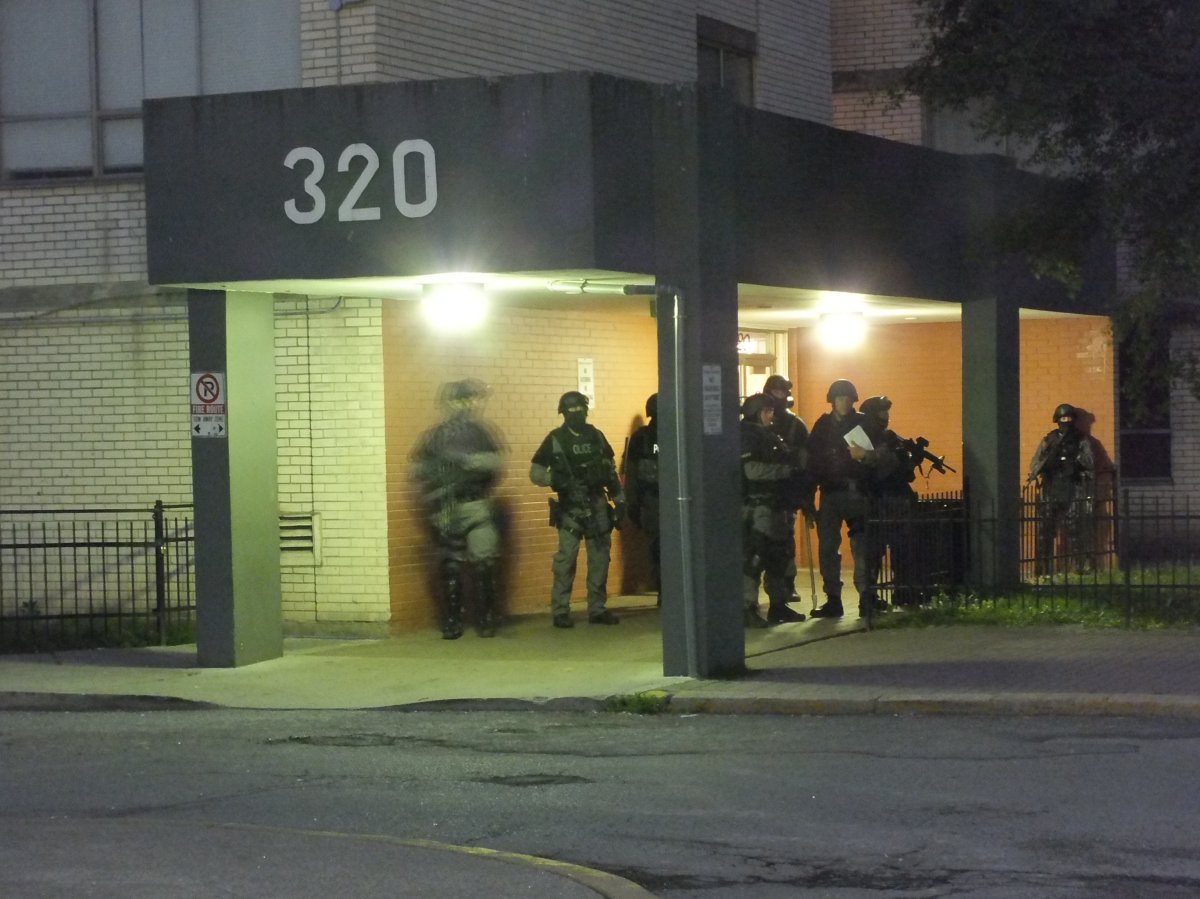Warrants with wiretaps can be kept from the public, an Ontario judge has ruled.

That means a slew of search warrants connected to Toronto Police’s Project Traveller raids will be kept redacted for now, despite efforts from several media organizations – Global News included – to have them released.
Police arrested dozens of people in a series of pre-dawn raids in Etobicoke and elsewhere in June as part of a guns and drugs case dubbed Project Traveller.
One of the raids’ focal points was 320 Dixon Avenue – the same west-end apartment building at which reporters say they watched a video of someone who looked like Toronto Mayor Rob Ford smoking what appeared to be crack cocaine.
The fourth-floor apartment of Mohamed Siad, the man who Toronto Star reporters say showed them the video, is included among the addresses in the search warrant.
Read more: Project Traveller raids
- Life in the forest: How Stanley Park’s longest resident survived a changing landscape
- ‘Love at first sight’: Snow leopard at Toronto Zoo pregnant for 1st time
- Buzz kill? Gen Z less interested in coffee than older Canadians, survey shows
- Carbon rebate labelling in bank deposits fuelling confusion, minister says
For months, journalists have been attempting to access 80-odd search warrants associated with the raids – but they needed exact dates and addresses just to request them.
Monday’s decision came down to one question: Is the information in a search warrant evidence in a proceeding, or part of an investigation?
The Crown argued that information in the warrants obtained by wiretap was part of a criminal investigation and had to be kept secret.
Media organizations, for their part, argued that because the content of those police intercepts had to be presented before a judge in order to get the warrant, they count as evidence presented in a proceeding and should be made public.
Ultimately, the Crown’s view won out.
“Our submission was, how could it not be a proceeding? It’s in front of a judge who makes a discretionary decision, and based on sworn evidence,” said lawyer Peter Jacobsen, who represents several of the media organizations.
“But the judge saw it another way.”
Whereas information tendered at a bail hearing would be considered evidence in a criminal proceeding, Justice Phillip Downes wrote in his Sept. 16 decision, information presented to a judge by an officer seeking a search warrant would not.
The ruling could have ramifications beyond this individual case: It isn’t unusual for police officers’ Information to Obtain a warrant to include some form of wiretap or intercepted communication.
In the meantime, Jacobsen said, he’s awaiting word from his clients on whether to appeal.
Watch: Are Project Traveller raids connected to Toronto Mayor Rob Ford?


Comments